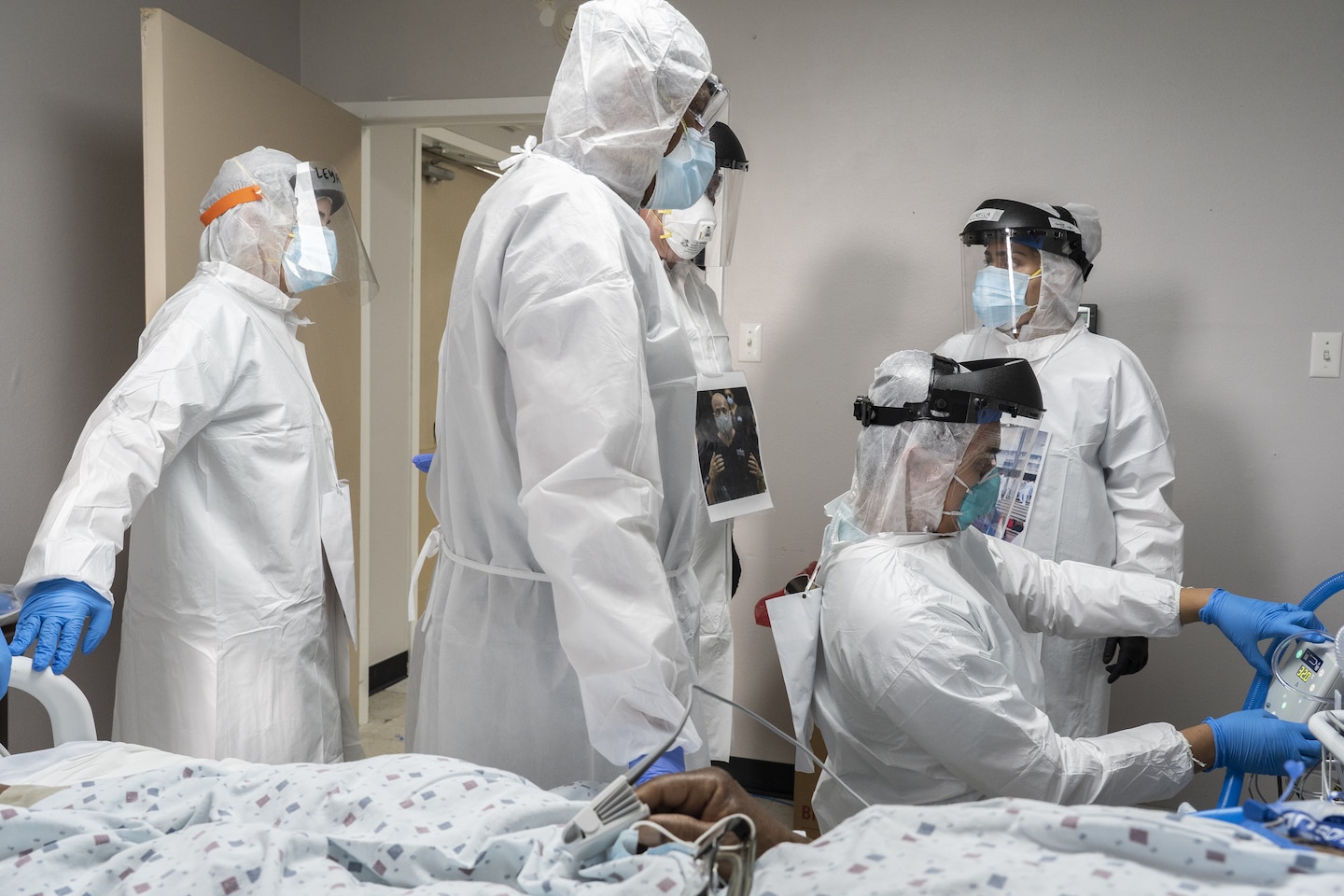Covid-19 is pushing doctors to the brink. Medicine needs to recognize they’re human and need help.

I eventually received treatment from a therapist, but in doing so, I was an outlier. When it comes to mental health, physicians seldom seek the kind of care they recommend to their patients, whether out of shame, fear of being stigmatized or silent acquiescence to the unwritten stoic norms of the profession. The advent of the covid-19 pandemic, with its extraordinary stresses on health-care workers, has made clear how vital it is to change this culture.
Approximately 27 percent of medical students and 29 percent of resident physicians experience depression or depressive symptoms over the course of their training, according to studies in the Journal of the American Medical Association (JAMA). Physicians, especially women, have a higher risk of suicide than the general population, and physicians in the United States are at higher risk for suicide than those in other countries.
Beyond the norms that discourage physicians from seeking care, professional fears may also play a role: Divulging mental health histories or treatment in the state licensing process can cost them their reputations and their practices. The AMA, the American Psychiatric Association and other specialty organizations have advocated against using past mental health diagnosis and treatment as means of assessing fitness for work. As of 2018, however, 32 state medical boards and 22 state nursing boards continue to ask mental health questions on licensing forms that are inconsistent with Americans with Disabilities Act.
This was the environment faced by health-care workers before the pandemic. Doctors and nurses have always dealt with patients’ terminal illnesses and deaths, but with covid-19, these tragedies are coming in rapid-fire succession, and in the form of an illness we are still just beginning to understand. Covid-19 has presented an added emotional burden: Doctors and nurses have had to stand in for family members barred from hospitals for fear of spreading infection. Loss of control, failure and helplessness are all part of practicing medicine, though never before, at least in modern medicine, on this magnitude, for this prolonged duration and with so many confounding uncertainties.
Health-care workers are expected to be tough in ordinary times; now they have been vaulted to “heroes.” The expectations and responsibilities have doubled, tripled, lost any relation to normal practice. Add to the mix severe space and resource limitations, and the ever-present worry about getting covid-19 or transmitting it to relatives, and the dangers to mental health should be obvious. Among 657 health-care workers at New York-Presbyterian Hospital surveyed at the height of its coronavirus surge, 57 percent reported acute stress, 48 percent depressive symptoms and 33 percent anxiety symptoms.
As disproportionate numbers of health-care workers become ill with the coronavirus, the standard return to work criteria (three days after last fever or respiratory symptoms with or without two negative coronavirus tests) coldly toss back some who may not be ready to return to regular duties, let alone the unusually demanding work environment of covid-era practice. Even after recuperating, patients may experience persistent physical symptoms, while others may develop neuropsychiatric effects, such as psychosis, depression or post-traumatic stress disorder.
In April, my specialty, emergency medicine, lost a gifted physician to suicide. Lorna Breen had ostensibly recovered from the virus and returned to work — and soon needed a psychiatric hospitalization. As the New York Times noted, her family believes Breen was overwhelmed by the number of patients she couldn’t save and “was devastated by the notion that her professional history was permanently marred and mortified to have cried for help in the first place.” We cannot presume that these feelings led to her suicide, but it is hard to think of Breen without being painfully aware of how difficult the profession makes it for physicians to need or receive care.
Clinical practice during the pandemic has been marked by remarkable adaptation and innovation, but that creativity has not been reflected in the response to health-care workers’ mental health needs. As the pandemic rages on, sustaining this vital workforce as the pandemic rages on will depend, in part, on the profession’s ability to transform its culture and make it possible to admit despair, defeat and sorrow: to admit, simply, that we are human.
Read more:






